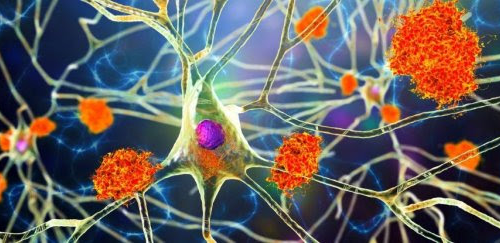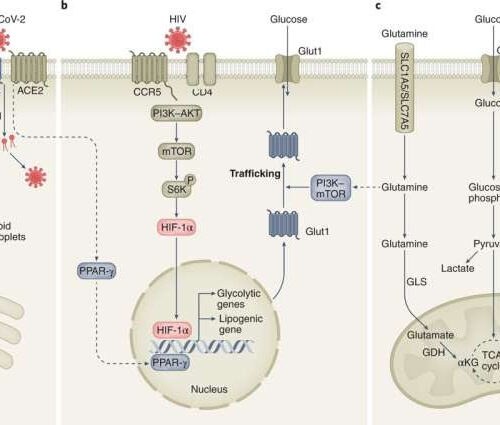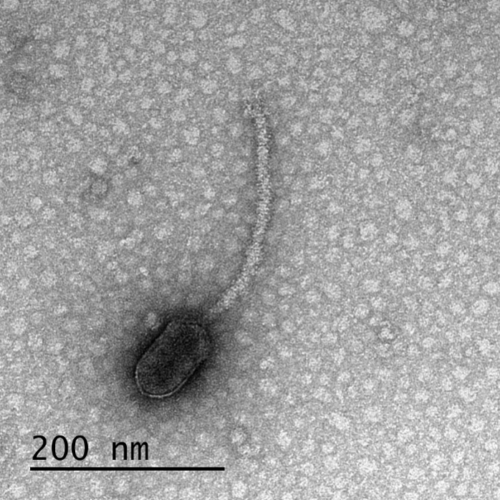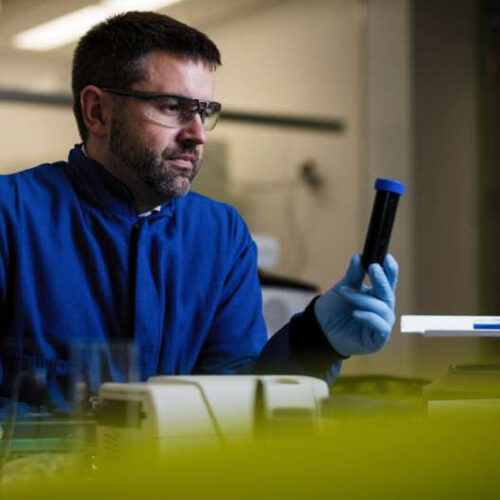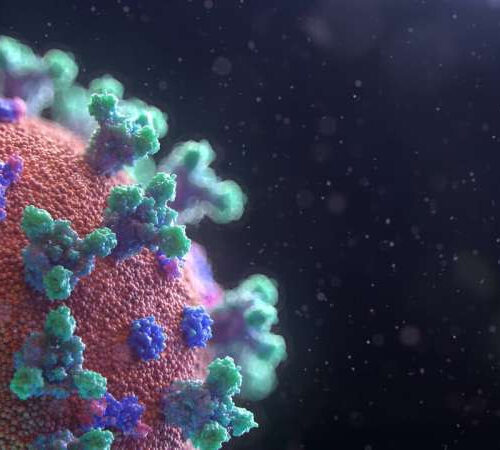A new study reveals a surprising fact: humans are actually spreading more viruses to animals than we receive from them.Edited by Nikhil Pandey Humans pass on more viruses to domestic and wild animals than we catch from them. For years, animals like rats and bats have been blamed for spreading diseases to humans. However, a...
Tag: <span>viruses</span>
A Study of 500,000 Medical Records Links Viruses to Alzheimer’s Again And Again
By FELICITY NELSON Amyloid plaques in Alzheimer’s disease (Kateryna Kon/Science Photo Library/Getty Images)A study of around 500,000 medical records suggested that severe viral infections like encephalitis and pneumonia increase the risk of neurodegenerative diseases like Parkinson’s and Alzheimer’s. Researchers found 22 connections between viral infections and neurodegenerative conditions in the study of around 450,000 people....
A new way to fight diseases? Stop viruses from stealing nutrients
by Leslie Tate, Tulane University Host nutrient metabolism is altered in response to viruses. a, Viruses such as HCV and SARS-CoV-2 interact with entry/metabolic factors to increase fatty acid synthesis, triglycerides and lipid droplets essential for replication and trafficking of viruses to the cell membrane. b, Interactions between HIV and its entry/metabolic factors trigger PI3K–mTOR–HIF-1α...
New UMBC research finds that viruses may have “eyes and ears” on us
UNIVERSITY OF MARYLAND BALTIMORE COUNTY IMAGE: A DELTA BACTERIOPHAGE, THE FIRST IDENTIFIED IN A NEW STUDY IN FRONTIERS IN MICROBIOLOGY TO HAVE BINDING SITES FOR CTRA, A PROTEIN PRODUCED BY THE BACTERIOPHAGE’S HOST THAT REGULATES THE PRODUCTION OF PILI AND FLAGELLA. THE PRESENCE OF THESE BINDING SITES ONLY IN PHAGES THAT REQUIRE THEIR HOST CELLS...
Scientists Identify Viruses as New Weapons to Fight IBD
Maya Davis August 09, 2022 Taking notes from blockbusters such as Outbreak and World War Z, viruses are typically seen as harmful agents to be wary of. But scientists have found they may be the key to helping the millions of people living with inflammatory bowel disease, or IBD. New research from the Weizmann Institute of Science has shown that bacteriophages...
Some viruses make you smell tastier to mosquitoes
UNIVERSITY OF CONNECTICUT Zika and dengue fever viruses alter the scent of mice and humans they infect, researchers report in the 30 June issue of Cell. The altered scent attracts mosquitoes, which bite the host, drink their infected blood and then carry the virus to its next victim. Dengue is spread by mosquitoes in tropical areas...
Novel antiviral therapies will attack the way viruses assemble
COVID-19 got us talking about viruses and antiviral treatment and antiviral therapies in general, but the truth is that these tiny organisms have been bothering humanity for the entirety of our history. In fact, now we are better equipped to fight them. Researchers at the Universities of York, York St John, and Leeds designed a new approach...
Do viruses such as the coronavirus become less deadly?
by Eva Botkin-Kowacki, Northeastern University Jared Auclair, associate teaching professor of chemistry and chemical biology at Northeastern, head of the Biopharmaceutical Analysis Training Lab, and the university’s COVID-19 testing facility, the Life Sciences Testing Center in Burlington, Massachusetts. Credit: Adam Glanzman/Northeastern University Variants of the coronavirus have come to represent the ultimate danger: A curveball in...
Viruses leave traces for long after infection
Viruses do not always kill the cells they infect. Researchers at the University of Basel have discovered in experiments with mice that cells have the power to self-heal and eliminate viruses. However, these cells undergo long-term changes. The findings may provide a hint as to why cured hepatitis C patients are more susceptible to liver cancer for...
‘Unlocking’ the potential of viruses to fight cancer
by Luxembourg Institute of Health Credit: Unsplash/CC0 Public Domain Researchers from the Laboratory of Oncolytic-Virus-Immuno-Therapeutics (LOVIT) at the LIH Department of Oncology (DONC) are working on the development of novel anticancer strategies based on oncolytic viruses, ‘good’ viruses that can specifically infect, replicate in and kill cancer cells. In particular, the LOVIT team elucidated the...

